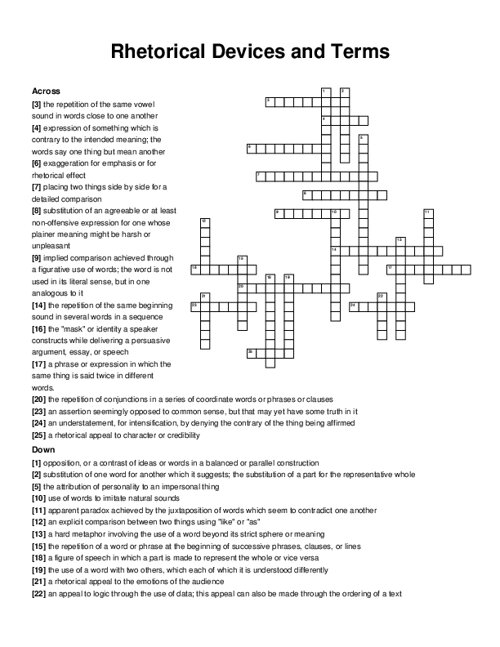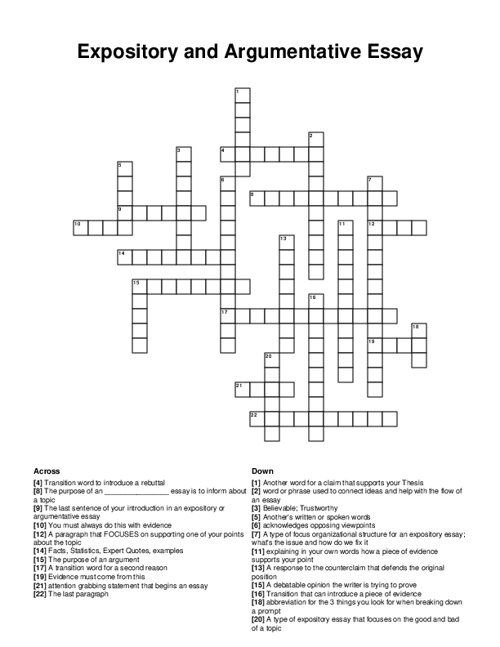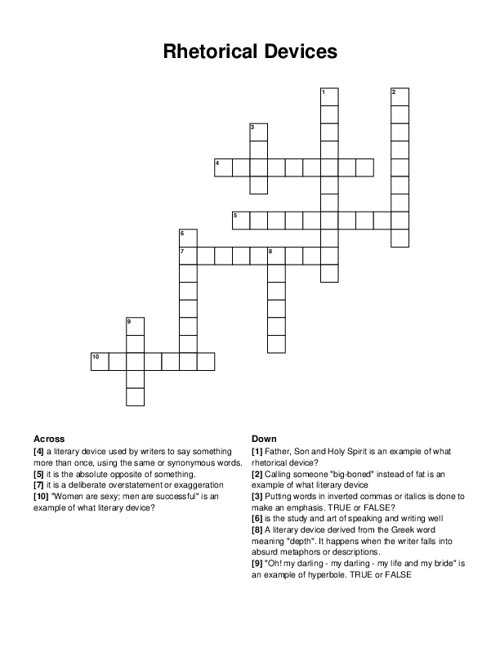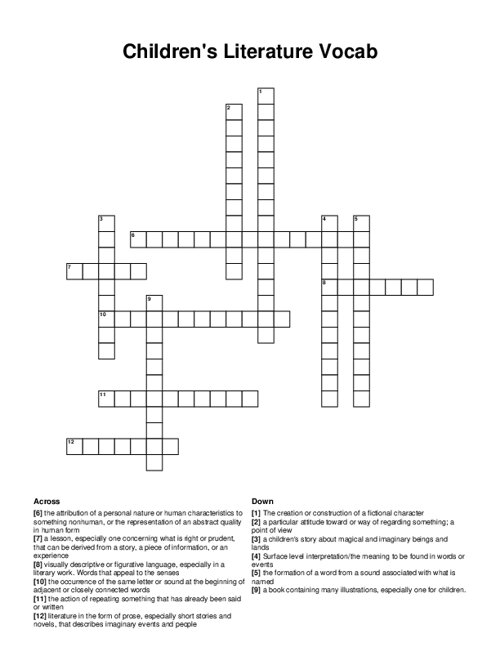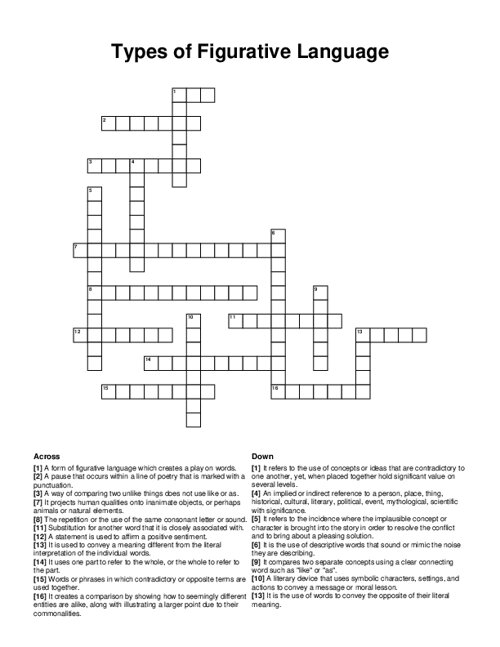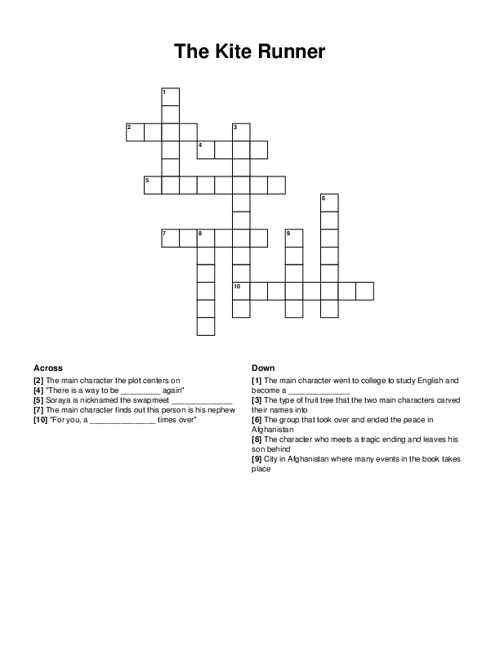Rhetorical Devices and Terms Crossword Puzzle
Download and print this Rhetorical Devices and Terms crossword puzzle.
Related puzzles:
Browse all Books / Literature Puzzles
QUESTIONS LIST:
- alliteration: the repetition of the same beginning sound in several words in a sequence
- anaphora: the repetition of a word or phrase at the beginning of successive phrases, clauses, or lines
- antithesis: opposition, or a contrast of ideas or words in a balanced or parallel construction
- assonance: the repetition of the same vowel sound in words close to one another
- catachresis: a hard metaphor involving the use of a word beyond its strict sphere or meaning
- ethos: a rhetorical appeal to character or credibility
- euphemism: substitution of an agreeable or at least non-offensive expression for one whose plainer meaning might be harsh or unpleasant
- hyperbole: exaggeration for emphasis or for rhetorical effect
- irony: expression of something which is contrary to the intended meaning; the words say one thing but mean another
- juxtaposition: placing two things side by side for a detailed comparison
- litotes: an understatement, for intensification, by denying the contrary of the thing being affirmed
- logos: an appeal to logic through the use of data; this appeal can also be made through the ordering of a text
- metaphor: implied comparison achieved through a figurative use of words; the word is not used in its literal sense, but in one analogous to it
- metonymy: substitution of one word for another which it suggests; the substitution of a part for the representative whole
- onomatopoeia: use of words to imitate natural sounds
- oxymoron: apparent paradox achieved by the juxtaposition of words which seem to contradict one another
- paradox: an assertion seemingly opposed to common sense, but that may yet have some truth in it
- pathos: a rhetorical appeal to the emotions of the audience
- persona: the "mask" or identity a speaker constructs while delivering a persuasive argument, essay, or speech
- personification: the attribution of personality to an impersonal thing
- polysyndeton: the repetition of conjunctions in a series of coordinate words or phrases or clauses
- simile: an explicit comparison between two things using "like" or "as"
- syllepsis: the use of a word with two others, which each of which it is understood differently
- synecdoche: a figure of speech in which a part is made to represent the whole or vice versa
- tautology: a phrase or expression in which the same thing is said twice in different words.
